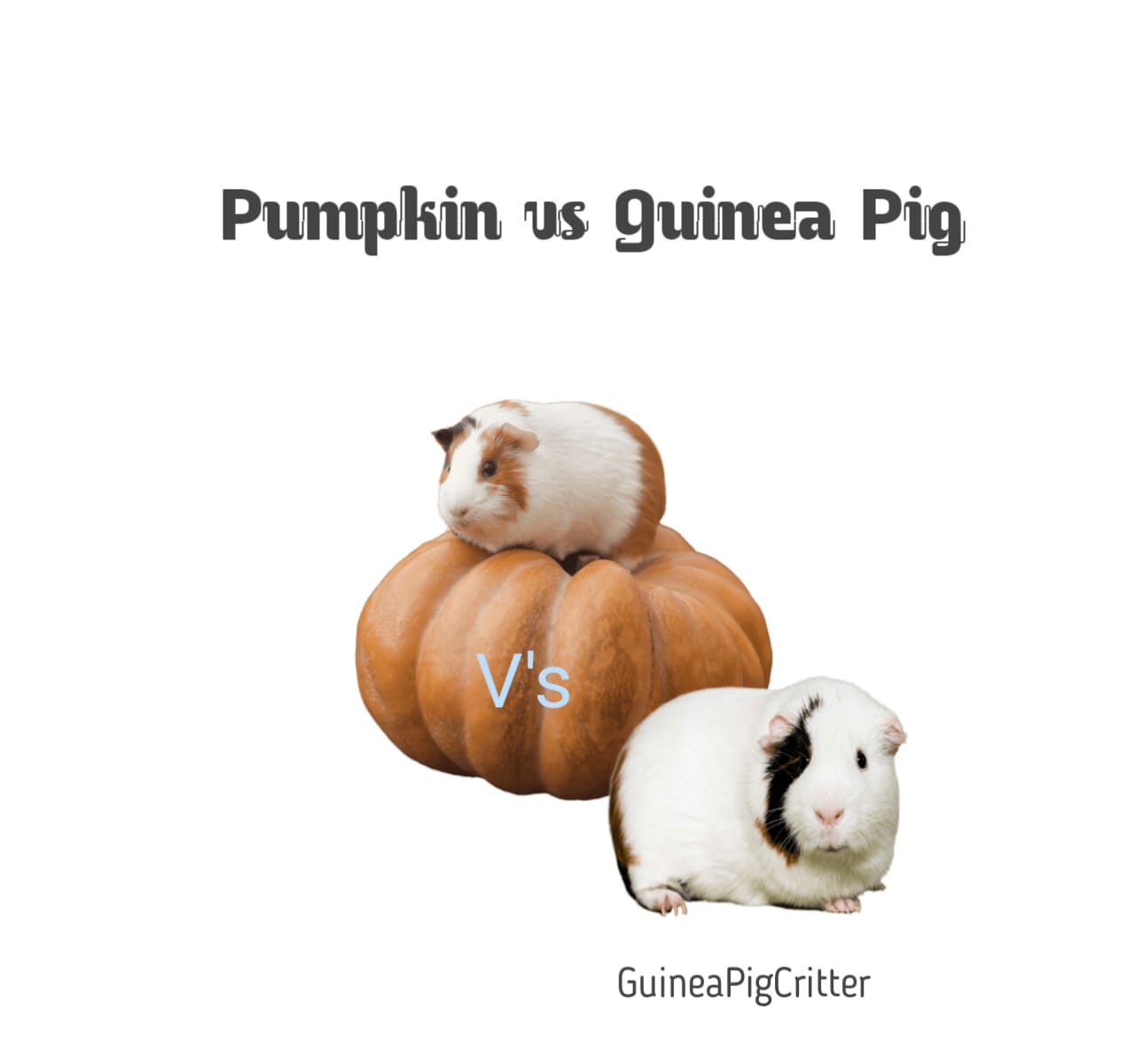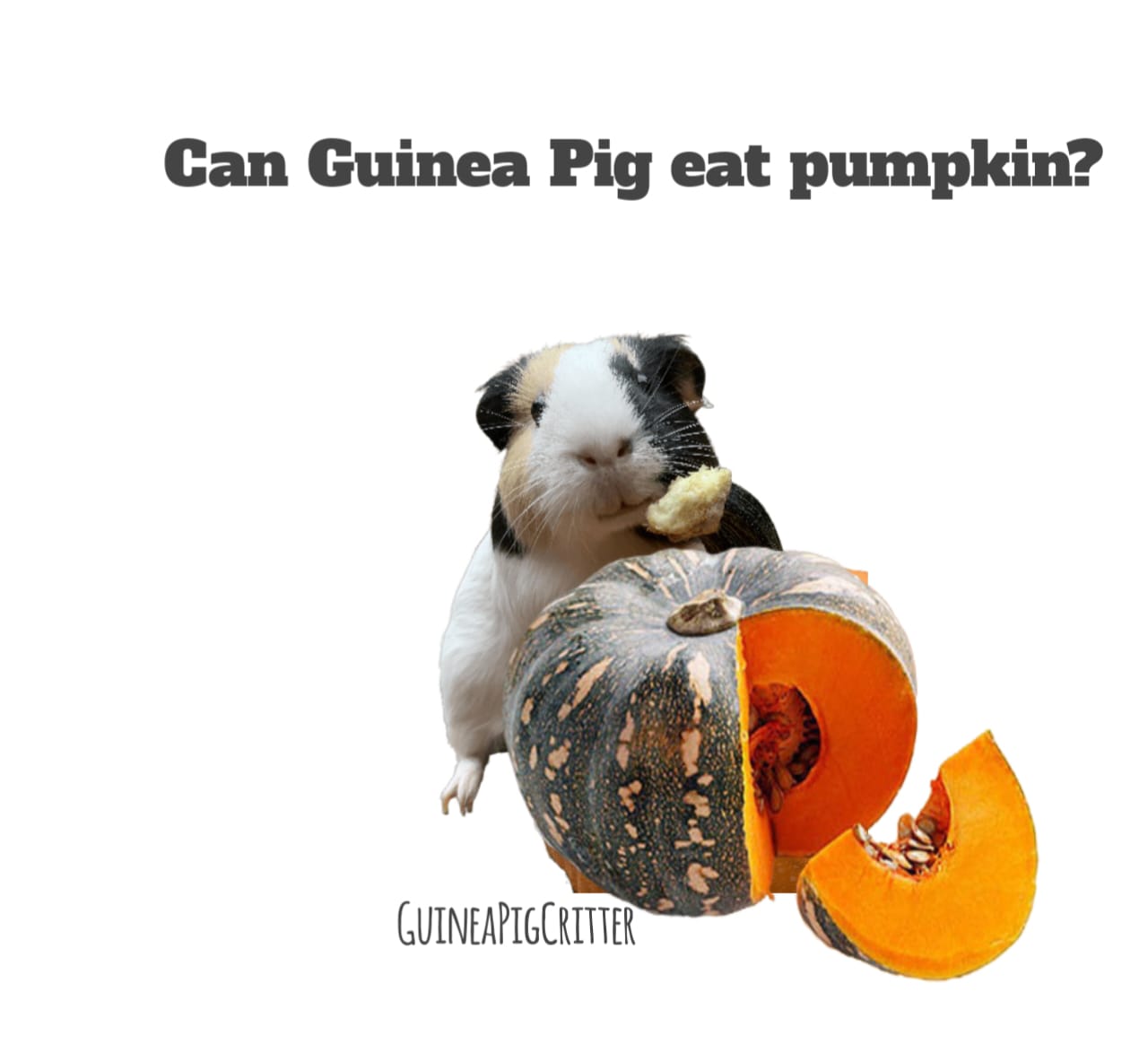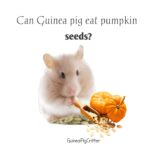The autumn season approaches and everyone starts consuming pumpkin in everything from pies to lattes. Most pet owners wonder if their pets could have some of that goodness too. And as a question, for the guinea pigs owners out there, you might be thinking, “can my guinea pig eat pumpkin and be fine?” This is an important question, it’s the kind you want to get into the details of, and we will do just that in this article guaranteeing no harm will come to your guinea pig in the process.
Similarly, here, we shall be looking at the nutrition of the pumpkin, its advantages or hazards in case of consumption by guinea pigs, the best methods to allow its consumption and address a burning question: does pumpkin make a nice treat for a guinea pig?
Nutritional profile of pumpkin
To begin with, let us examine the nutrition content of pumpkin and see if it is possible for guinea pigs to eat it. It is fair to state that pumpkin is nutritionally dense, but it’s also easily distinguishable from the leafy greens which usually constitute the main diet of guinea pigs.
Nutrients in pumpkin:
Vitamin a: yes, it is helpful in protecting eyes. But only a certain quantity is advisable to give to guinea pigs as some might be harmful.
Vitamin c: vitamin c is critical for immune health since it cannot be manufactured by guinea pigs the same way humans do.
Fiber: assists in maintaining digestive health, which is quite vital for the guinea pigs because their digestive systems are quite sensitive.
Antioxidants: provide general health benefits and might even help towards inflammation.
Sugar content: pumpkin has natural sugars, and this could present a problem for guinea pigs if consumed in large quantities.
Understanding what is in a food allows us to make the proper choices. So generally, pumpkin does have a lot in its favor but its consumption and feeding practices should be done with care.
Benefits of pumpkin for guinea pigs
If offered in the right way, pumpkin does have some health benefits. Here are some of the ways in which squash can be beneficial for your guinea pig’s health:
Immune support: pumpkin has vitamin c which can further assist in immune support. This is very important for the guinea pigs since they do not synthesize vitamin c naturally and have to obtain it completely from their food.
Digestive health: pumpkin contains fiber, which may aid digestion and avoid constipation. Should your guinea pig suffer from mild digestive troubles, some pumpkin will assist in maintaining a healthy balance.
Hydration: since pumpkin contains a high proportion of water, eating it may assist in hydration, which is particularly useful during summer months when guinea pigs are in need of more water.
These benefits seem enticing, but it is crucial to remember that pumpkin should only be a small part of your guinea pig’s fresh food recommendations. Guinea pigs still need a primary diet of high quality hay, pellets designed for guinea pigs, and assorted fresh greens of vegetables.
Precautions and their risk
There are possible advantages to feeding your guinea pig pumpkin. There are however, specific risks that you should be aware of before doing so.
Content of simple carbohydrates: among the naturally occurring sugars in pumpkin is a natural sugar and this is usually harmful to the animal’s health’s if an excess quantity is fed. They are very small animals and simply are unable to consume a great quantity of sugar since their bodies become ill as a result.
Possibility of inducing digestive discomfort: a higher dietary carbohydrate component in pumpkin versus more normal vegetables for guinea pigs could in some cases lead to the over consumption of pumpkin resulting gas or bloating. Start off low and see if there are any issues with your pet.
To much vitamin a: vitamin a in high quantities is dangerous because of the resultant damages to the body over a long period. Guinea pigs don’t require a great amount of vitamin a so it is critical to limit pumpkin use.
To mitigate these risks, use small amounts, use it sparingly and observe your guinea pig within the hours after feeding them pumpkin for signs of pain or excessive behavior change.
Types of pumpkin: what’s safe and what to avoid?
Not all pumpkins have the same thickness, and there are certain pumpkin products that should be avoided by guinea pigs. Let’s take quick note of this:
Fresh pumpkin: this is the most appropriate of all. Prefer raw or lightly cooked pumpkin with no spices, salt or sugar added on top.
Canned pumpkin: canned pumpkin that is plain and has no additional ingredients is safe to consume but can pose a risk as it is most often concentrated and sweetened. Stay clear of canned pumpkin that has added spices, sugar, or preservatives.
Pumpkin seeds and skin: the hardest to swallow being the seeds and skin and are a potential choking hazard. So se these and serve the flesh only for your guinea pigs.
Pumpkin pie or puree with spices: there are some that are ready to feed their pets pumpkin products made for humans, such as purees and pie fillings, it has a lot of sugar and spicy flavors that could be dangerous to guinea pigs.
When in doubt, stick to simple pumpkin. Refrain from utilizing processed or any flavored pumpkin products.
Process to introduce pumpkin in the diet of a guinea pig
Your guinea pig is to be fed with new foods that are introduced slowly. Here’s the process.
Pumpkin: a guide(pumpkin for your guinea pig) to gauged how your pet will react to the new food, start small: start with a small piece of pumpkin, about the size of a fingernail. This allows you to see the reaction of your guinea pig to the new food. Start with a small piece of pumpkin, as this will best gauge the reaction of the piggy. Give your guinea pig a piece of pumpkin about the size of a fingernail.
Observe for reactions: following after first serving for the correct amount of the first serving, all other members who wish to remain calm should make sure that their guinea pigs are kept under supervision for an entire day. If so, and pumpkin was giving them the discomfort, then stop feeding them with pumpkin.
When to incorporate: however, if the guinea pigs were able to tolerate the pumpkin without troubles, incorporating the dish with a treat at least once a week would be reasonable. If the pumpkin is allowed to be served on a daily basis, there may be disproportions within their diet.
Combine: sometimes it is advisable to combine a small chunk of pumpkin with other safe vegetables, such as bell pepper or cucumber, to both interfere and ensure that pumpkin will not be the only source of nutrients.
To reduce the chance of any digestive disorder and to understand if your pet has any intolerance to certain foods, a slow introduction is recommended. As a cavy owner you do not wish to see your pet suffer.
Substitute treats in case pumpkin is not suitable
If pumpkin doesn’t apparently fit the taste of your guinea pig, there is no cause for concern because there are plenty of other treats that guinea pigs can eat without harm. Some of the substitutes include:
Bell peppers: bell peppers are high in vitamin c and low in sugar content, which makes them a wonderful treat for guinea pigs.
Cucumber: as cucumber is high in water and low in calories, it could be useful for maintaining the hydration levels of your guinea pig.
Zucchini: an alternative and better, zucchini contains high fiber and is very easy on the stomach of guinea pigs.
While looking for treats for the animals, nontoxic, low in sugar, high in fiber and with plenty of vitamins should be sought after so as to enhance guinea pig’s health.
Conclusion: should guinea pigs eat pumpkin?
So finally, we can say that guinea pigs can safely enjoy tiny amounts of pumpkin from time to time and it is nutritious too. With its rich vitamin c and fiber, pumpkin has some health benefits and can be a nice seasonal treat to provide your furry friend. Pumpkin’s high sugar content and vitamin a level are, however, good reasons to limit the quantity offered to the animal.
The golden rule: start with a small piece and always see how your guinea pig responds, then don’t go overboard and stick to once a week. It’s okay to provide a healthier seasonal treat to your little furball as long as you adhere to the prescribed rules.
Pumpkin can be an excellent and tasty diet for your little friend but don’t forget to provide high-quality hay, pellet, and green vegetable as well. Do not forget that for a guinea pig to be happy and healthy it requires a proper balanced diet.


